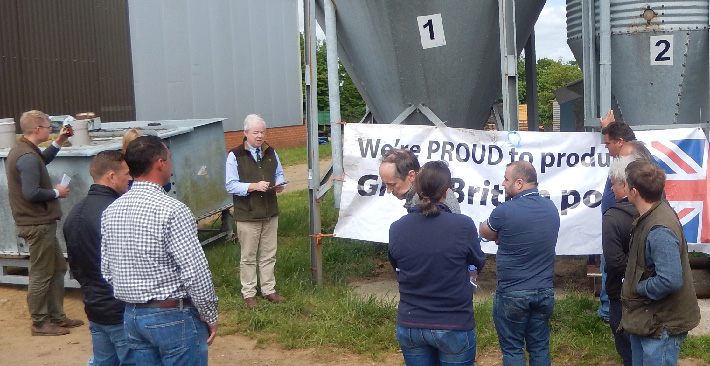Not a particularly auspicious start to the year with some puzzlement as to why the latest SPP has actually slipped by .45p to 162.44p for the week ending December 28, because judging from price reports nobody seems to remember taking less money for any pigs during the reference period!
Domestic demand for pig meat is continuing to be patchy which is a worry, although January is a notoriously difficult time for pig sellers, with something of a backlog of food still in the Christmas larder as well as credit cards, like many high street shoppers, almost completely worn out and exhausted.
European prices have generally remained at similar levels, with the influential German producer price quoted unchanged at €1.95, which translates to 166p in real money.
Weekly contribution prices are also generally static within the 155-163p range and not much enthusiasm for extra numbers which has pushed a few more pigs on to the spot market, which has also drifted slightly with spot trades in the 160-163p bracket.
The European cull sow processing industry is now cranking up for the new year and prices are reported to be holding at similar levels, mainly trading in the 113-117p range, with larger numbers coming forwards after two quiet weeks but this is certainly better than their value a year ago, which stood at little more than 60p/kg.
On the currency exchanges, the euro has held at very similar levels, trading on Friday at 85.21p and any further reduction in the strength of the pound would benefit UK pig meat importers and exporters.
Weaner values have generally improved with the latest AHDB 7kg ex-farm average up by just over a quid to £42.50/head but still no average value quoted for 30kg weaners which have mainly traded in the £57-£60 region according to numbers and whether they are RSPCA Assured or Red Tractor.
Feed prices are continuing their stealthy rally, with UK spot ex-farm feed wheat quoted at £143/t and on the futures market feed wheat is quoted at £156/t for February and £165/t for September.
Forward feed barley deals have been agreed at £134/t for February and £140/t for September.
Protein levels are holding firm with Hipro soya quoted for February-April at £295/t and longer months at £301/t for November-April 2020/21. As previously advised, producers should keep a close eye on currency and grain markets with reports of Chicago wheat closing firmer following reports of some reductions in global availability, including dry weather conditions in Russia and the nightmare Australian fire storms causing havoc.
Chinese and other neighbouring Asian countries continue to suffer from the ASF epidemic which has knocked a huge hole in supplies in the Southern hemisphere and remains a worry for those of us in the North too. Signs are emerging that without the benefit of soaring global pig meat prices, the UK pig profitability could be on the floor, or beneath it!
Indonesia alone has confirmed around 400 cases of ASF and reports indicate that these are likely to continue to spread, especially where there are backyard pigs which is often the case in many Asian countries, making the control and eradication of the ASF scourge extremely difficult and a long-term operation.
On the basis that every cloud has a silver lining, however, October UK pig exports continued to rise to a record high of 25.100 tonnes, at a time when fewer imports are heading this way due to other lucrative markets in other parts of the globe due to the Chinese situation.
And finally, UK producers continue to be puzzled and concerned over the inability of the SPP and weekly contribution prices to follow the upward price patterns in many other parts of Europe and a glass ceiling seems to be in place, with reports of pig prices in Eire being well ahead of those in the UK. In the words of a certain politician “something should be done”. We shall see.




